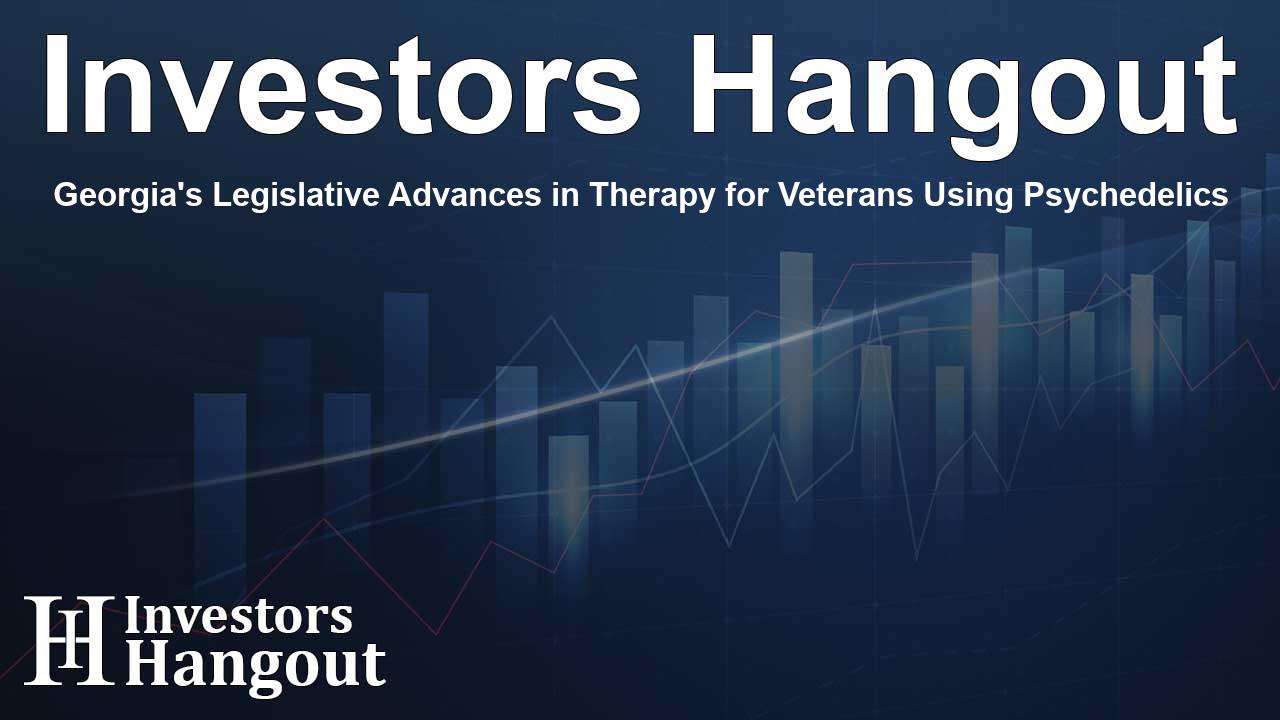Georgia's Legislative Advances in Therapy for Veterans Using Psychedelics

Georgia's Legislative Advances in Therapy for Veterans Using Psychedelics
Georgia lawmakers are actively engaging in discussions surrounding the therapeutic potential of psychedelics to address mental health issues faced by veterans. This initiative marks a noteworthy transition in the state's longstanding conservative drug policy. Reports indicate that a bipartisan panel has proposed allocating substantial funding to investigate the effects of substances such as MDMA and psilocybin specifically for treating post-traumatic stress disorder (PTSD) and traumatic brain injuries among veterans.
A Promising, Yet Controversial Step
The recommendations arise from a comprehensive set of proposals issued by the Senate Study Committee on Veterans, Mental Health, and Housing. Although this funding proposal requires approval from the state's General Assembly, its endorsement reveals a growing interest in exploring alternative therapies, especially for PTSD—a condition that significantly impacts many veterans. Traditional treatments often fall short, leaving individuals grappling with debilitating symptoms such as severe anxiety, persistent nightmares, and insomnia.
State Senator Josh McLaurin, a committee member, emphasized the urgency of finding better treatment options, stating, "Veterans who suffer from post-traumatic stress and brain injuries have limited reliable treatment options. Emerging research suggests that psychedelics, when administered in structured clinical environments, might revolutionize care for these conditions." This sentiment embodies the hope that innovative therapies can bring relief to those who have valiantly served their country.
National Context and Growing Support
Georgia's approach mirrors initiatives seen in states like Oregon and Colorado, where psilocybin has surpassed legal barriers to become a viable option for treatment. Additionally, California has made strides toward decriminalizing psychedelics, showcasing a national trend toward reassessing the use of these substances. Meanwhile, research institutions, including Emory University in Atlanta, have begun to investigate the potential benefits of integrating psychedelics into therapeutic practices.
Despite recent setbacks from federal regulators regarding the approval of MDMA for PTSD treatment, the U.S. Department of Veterans Affairs (VA) has expressed willingness to embrace advanced psychedelic therapies once they secure regulatory approval. This shift is bolstered by support from prominent advocates such as Bob Parsons, a Vietnam veteran and GoDaddy founder, who has invested significant resources into promoting research in this field. His active involvement has helped to sway perspectives among politicians and skeptics alike, illustrating that even initial opposition can transform into enthusiastic support for the cause.
Broader Recommendations for Veterans
Beyond the focus on psychedelics, the Senate committee has put forth proposals that encompass a wide array of support for veterans, including measures to alleviate property taxes for returning servicemen and women. Additionally, initiatives aimed at simplifying the healthcare system for veterans have also been prioritized, highlighting a holistic approach to improving wellbeing for those who have dedicated their lives to serving.
If legislative support for the proposed research funding is secured, it will symbolize an essential turning point toward innovative mental health treatments, instilling a sense of hope in veterans seeking relief from their conditions. This movement aligns with a broader national discourse on the role of psychedelics in effectively addressing mental health challenges.
Frequently Asked Questions
What inspired Georgia lawmakers to explore psychedelics for veterans?
The growing recognition of PTSD and mental health challenges among veterans, coupled with scientific research suggesting that psychedelics may provide therapeutic benefits, has prompted legislative action.
What specific substances are being considered for research?
Lawmakers are particularly interested in substances like MDMA and psilocybin, which have shown potential in alleviating symptoms of PTSD in clinical studies.
How does the proposed funding plan work?
A bipartisan panel has recommended allocating up to $5 million to study the effects of these substances, pending approval from the Georgia General Assembly.
What broader initiatives accompany the focus on psychedelics?
The committee also suggests tax relief for veterans and reforms to improve their access to healthcare services, demonstrating a comprehensive approach to veteran support.
Who is supporting this legislative effort?
Prominent figures such as Bob Parsons are advocating for psychedelic research, influencing both public perception and legislators’ views on the potential benefits for veterans.
About Investors Hangout
Investors Hangout is a leading online stock forum for financial discussion and learning, offering a wide range of free tools and resources. It draws in traders of all levels, who exchange market knowledge, investigate trading tactics, and keep an eye on industry developments in real time. Featuring financial articles, stock message boards, quotes, charts, company profiles, and live news updates. Through cooperative learning and a wealth of informational resources, it helps users from novices creating their first portfolios to experts honing their techniques. Join Investors Hangout today: https://investorshangout.com/
Disclaimer: The content of this article is solely for general informational purposes only; it does not represent legal, financial, or investment advice. Investors Hangout does not offer financial advice; the author is not a licensed financial advisor. Consult a qualified advisor before making any financial or investment decisions based on this article. The author's interpretation of publicly available data shapes the opinions presented here; as a result, they should not be taken as advice to purchase, sell, or hold any securities mentioned or any other investments. The author does not guarantee the accuracy, completeness, or timeliness of any material, providing it "as is." Information and market conditions may change; past performance is not indicative of future outcomes. If any of the material offered here is inaccurate, please contact us for corrections.